2022 Week 4: Government/Policy
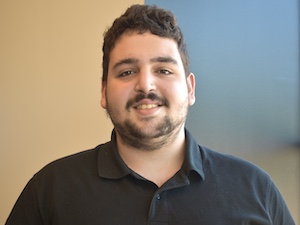 Kerim Bali | Office of Councilmember Mark Conway
Kerim Bali | Office of Councilmember Mark Conway
This week was an especially interesting one because we held our first official Community Day. A Community Day involves the Councilman and us traveling across the district and visiting constituents who have previously called in with issues. We were met by a variety of reactions; some people were very happy to see us, some people were more frustrated with the local government. However, what struck me the most was that they were all shocked. They mentioned that it is standard practice for politicians to visit these neighborhoods when they’re campaigning, but it is very rare for them to come back when it’s not to ask for votes. It was sad to hear how much the governmental system had failed some constituents in Baltimore, but I was glad that the Councilman was trying to rectify those errors and show up as much as possible.
The Community Day also reminded me of one of the most major goals I had for this summer: to interact with Baltimore residents as much as possible. Meeting people who have been living in the same house or the same neighborhood in Baltimore for decades, and talking to them about their experiences and listening to their stories was a really eye-opening experience. We usually study the history of Baltimore in classes or seminars, and use textbooks and presentations, but to actually talk to people who have lived through that history was a great opportunity. Over the last few weeks, I really want to be involved in as much community engagement events as possible. I hope to continue being much more involved in the Baltimore community after the internship is over as well.
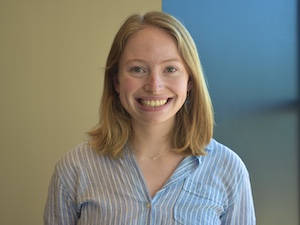 Sigrid Edson | Mayor’s Office of Immigrant Affairs
Sigrid Edson | Mayor’s Office of Immigrant Affairs
This weekend I went home to see some family that was visiting. It was a nice break and reset, as I had hoped it would be, but explaining the work I’m doing at MIMA to relatives turned out to be an unexpected source of insight and reflection as I go into the second half of the internship. For these first four weeks, I have felt kind of like I have been saying the same things over and over when I talk about my work with other members of the cohort or my friends outside of CIIP — I don’t have a ton of projects, working virtually is difficult, and I like the people in my office but haven’t had any breakthroughs. Going home and explaining what I’m doing to my grandmother (an immigrant herself, mostly concerned if this experience will set me up for a good job after graduation) and my aunt (a longtime grant writer for Portland Public Schools with plenty of ideas about the challenges of working in local government) let me see my work with new eyes.
First, my grandmother’s worldly concerns about the viability of my potential career path: I tend to follow whatever’s interesting in the moment rather than mapping out a set of checkpoints on the way to a concrete goal. I’m involved in CIIP because I like the cohort model, the program aligns with my values, and it allows me to stay in Baltimore for the summer while learning a ton about anything and everything having to do with the city and social justice. While MIMA makes sense for me on paper given my majors, I don’t necessarily see myself following a logical career progression in this same field. Still, having to articulate how the placement could set me up for future work and success — even just as reassurance to my family that I’m employable in a “stable” field — helped clarify what I’m gaining from this experience in my own mind. I’m extremely grateful to get to work in a small government office and to learn about local bureaucracy and community engagement from the inside, and these experiences do in fact serve many of my future goals, whether in a linear way or not.
And second, my aunt’s insight into local government: Many times, I have been put through the exercise of comparing Baltimore to my small hometown in Virginia, or even to my honorary hometown of DC. Comparing Baltimore to Portland, Oregon, where my aunt has lived for twenty years and worked as a public servant, was a completely different and fascinating conversation. The two cities are similar in size but different demographically and at different points in their journeys of growth and flight. Still, the issues regarding “development,” housing, policing, corruption, and budgeting span both communities. I surprised myself with how much I knew about the roots of these problems in Baltimore, and how easily I was able to articulate them in conversation with someone who didn’t have the same education on the city that I do. The discussion was interesting in its own right, and also reminded me that over the past two summers of CIIP, Baltimore really has become my home. I’m learning a lot, and am newly motivated to keep doing so.
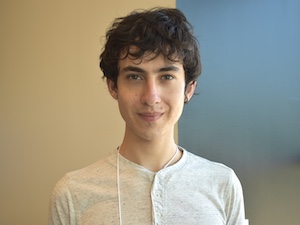 Carlos Gamboa | Office of Councilmember Zeke Cohen
Carlos Gamboa | Office of Councilmember Zeke Cohen
At the start of my internship with Councilmember Cohen, my goals were somewhat nebulous. Truthfully, I was not sure exactly what to expect from the position until I began: as such, I aspired broadly, hoping to familiarize myself with the workings of city government and identify some career options. Of course, I also aimed to make connections and meet new friends, but I figured that would come naturally. All that said, I was mostly just excited for a new beginning in a fresh environment, and gave relatively little thought to the specifics.
As the summer has drawn on, I have stuck by these goals, but in a more refined form. I can now confidently say that I have a decent understanding of the structure of city government, including the legislative process, 311 requests, and the delegation of responsibilities between different agencies. Moving forward, I am most interested in researching specific pieces of legislation relevant to Baltimore today. One initiative that has caught my eye is the “dollar homes” program, which strives to sell vacant houses in Baltimore for only a dollar. This measure would supposedly encourage the repopulation and renovation of abandoned buildings, which seems brilliant at first glance. However, alhough various bills and groups have proposed this initiative, it inevitably flounders: many councilmembers are concerned that the final market value of the home will be massively overshadowed by the cost of renovations, leaving participants in the program in debt. During my remaining time at City Hall, I would like to discuss the initiative with both it’s supporters and opponents and explore possible solutions to its shortcomings. In terms of my career path, I am still undecided. I have, however, narrowed down that I want to write and deal directly with people for a living: since I never expected to choose my future job this summer, I feel that I am making progress on this front as well.
As to interpersonal connections, my predictions were fairly accurate. I made new friends and got to know my coworkers seamlessly, and now have a wonderful support system. I will be participating in a book study at the councilmember’s office next semester; in fact, I might even stay on as a part-time intern. On top of that, hosts BITES discussion sessions and frequent special events, like movie nights and the recent Orioles game. Between my friends and CIIP programming, I am never at a loss for plans. During the remainder of the summer, I hope to deepen my friendships so that they endure for years to come. Overall, I feel that I have made considerable progress towards my summer goals, and I am confident that I can maintain my momentum for the last half of the program.
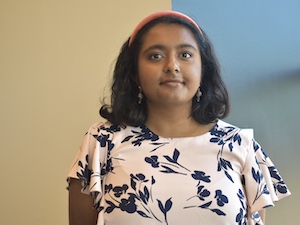 Diksha Iyer | Out for Justice
Diksha Iyer | Out for Justice
I definitely feel like the goals that I had at the beginning of the CIIP experience and the goals that I have now are different, but tangentially related. I initially wanted to learn more about the legal system and contribute positively to the Baltimore community that I am working with. However, while I still hold those goals, I have narrowed down specifically what aspects of the legal system I am most interested in learning more about based on the people that I interact with, and I am much more confident about the interactions that I have with the members of the Baltimore community. In fact, I have been able to perform the intake process on my own several times, and have been tracking those individuals and forming good, close relationships with them. I feel very invested in their future, and I am so glad that I met them, have learned their perspectives on policy issues, and have been able to learn their story. Therefore, I think I am on track to meet my goals, but I have changed them a little bit based on the experiences that I have had. Because my nonprofit identifies as a grassroots, member-led organization, I have had the opportunity to interact with so many people from the Oliver District, learn their backgrounds, and record their stories. It’s interesting to see how each person advocates for themselves. Oftentimes, I see that formerly incarcerated individuals are not interested in learning how to navigate the legislative system or be educated, voting citizens. My next goal is to learn more about why that is the case, and frame my thinking so that I can empathize with them, and empower them to participate in a system that is not designed for them.
Another goal that I have picked up recently is to be more comfortable traveling around Baltimore. Therefore, I pick different locations to go to each week, or I try going to work using a different bus route. By forcing myself to be uncomfortable and denying myself a routine, I have found that I am much more flexible and more at ease with the city itself. I want to continue doing this throughout the summer, so that I am more prepared during the school year to take a more active role with my curriculum/connect what I am learning with the city around me.
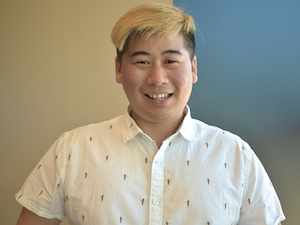 Frank Meng | BCPS Engagement Department
Frank Meng | BCPS Engagement Department
Going into Baltimore City Public Schools as a summer intern, knowing I would work with staff on educational matters but do not know anything specific to expect. I thought I would be reviewing and editing the grandiose educational policy as I believe it is more important and challenging to do. But I was wrong. Without doing the groundwork and knowing the district and the students, there is no way to propose new guidelines. I realized that policy is more than fancy language on papers, and it dramatically influences students. So yes, my goals have changed. I stop pursuing the seemly “glamorous” policy stuff and start doing hands-on work that directly impacts our students.
My current focus is on recruiting and engaging with our biggest Summer Family Festivals volunteers. By drafting emails, follow-up surveys, and orientation materials, I am able to apply what I learned in my Research Method. This is a great way to establish critical links between theoretical methodology and real-world application. We had numerous discussions on the languages, formality, accessibility of the survey, and emails. One particular discussion struck me the most. My supervisor asked me to create a flyer. After a few drafts, I sent it to her. She told me to add a QR code and a link for people to click. She specifically asked me to add the line “scan the QR code or click the link below to register,” which I thought was unnecessary and redundant. I am not particularly technical savvy, but I do know the basics. Nevertheless, considering the lack of access to technology in Baltimore (about 41% of households in Baltimore did not have wireline internet service), it is critical to add additional instructions on simplifying things like using QR codes. It is essential to understand the audience you are trying to communicate to and provides maximum accessibility.
Going forward, my goal would be to understand better the perspectives of the City Schools, the students, and their families. It is a goal not derived from the process of formulating policies but rooted in the experiences of the students and residents of Baltimore.
